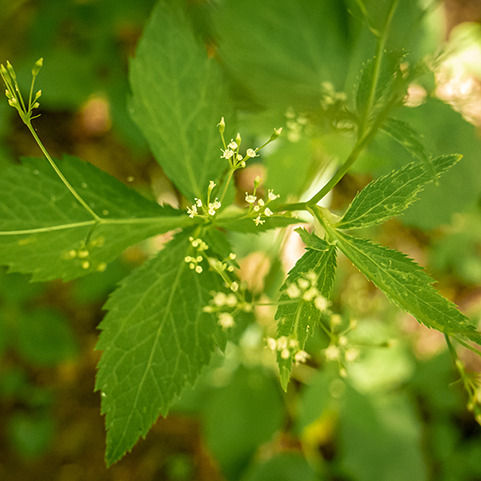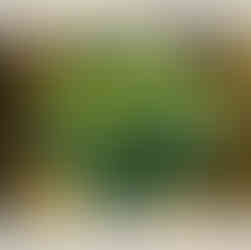Many home gardeners who enjoy fresh culinary herbs eventually find themselves discovering tiny black, yellow, and green caterpillars munching away on their crops. These are Eastern Black Swallowtails caterpillars (Papilio polyxenes) and are one of the few exceptions to the native-plant-insect-host-rule.
Unlike most other native insects that require their native host plant species to feed from, these caterpillars graze on the many members of the Apiaceae, or Carrot, family. This family is large, consisting of anywhere from 2500-3000 different species, and its members can be found growing the world over. Many of our old world culinary crops happen to be in this family, including Carrots, Dill, Cilantro, Fennel, Parsley, Celery, Anise, Caraway, and Chervil - and this is why we often find Black Swallowtails feeding on these plants. Due to the Black Swallowtail's acceptance of these annual (or biennial) food crops these plants are often the go-to for those who garden for and raise butterflies.

The lack of conversation around utilizing native host plants for Black Swallowtails is unfortunate because there are 24 species within the Apiaceae family that are native to New York and are capable of hosting Black Swallowtails, 21 of which are native to Long Island. So why is it that these species are not often discussed in reference to gardening for Black Swallowtails?
The reasoning is multi-faceted, with some of these plants require special growing and many being wetland plants. Others can be toxic if ingested or can cause skin irritation if not handled properly. This trait being shared throughout the Apiaceae family, with the ever notorious and invasive Giant Hogweed (Heracleum mantegazzianum) and Wild Parsnip (Pastinaca sativa) public enemy number one - both being capable of inflicting serious chemical burns to humans and wildlife who might brush up against a plant or get sap on them.
With the few unfavorable characteristics out of the way, there are still plenty of options for the home gardener when it comes to native host plants. Whether you have a full sun meadow, or a woodland garden, there is a native Black Swallowtail host you can grow in your own garden.
Here are our top picks for gardening with native host plants for Black Swallowtail Butterflies:
Click the photos for more information on each species.
These species cover a diverse array of conditions and ornamentation, from the sun-loving Alexanders to the woodland favoring Sweet Cicely. They are also perennial, being able to better handle the browsing pressures of caterpillars and returning year after year. Bright Golden Alexanders can provide a burst of yellow in the meadow, towering Cow Parsnip can be a stately vertical accent, while the diminutive Wild Chervil demands you stop and take a closer look to appreciate it close up. There is truly a native host plant to make any gardener (and butterfly) happy!

A note on Queen Anne's Lace:
Like so many other invasive species that are so prevalent in our environment many people mistakenly believe that Queen Anne's Lace is a native wildflower. Besides already being common along most roadways, it is also commonly included in "wildflower mixes" and often finds its way into butterfly gardens. The truth is, Queen Anne's Lace is a complex of Wild Carrot and Feral Domestic Carrot and is considered by most to be detrimental to the environment and so should be avoided within the home garden.
Be sure to sign up for our newsletter to receive our nursery plant availability. If you don't see what you're looking for listed, please ask as we can source almost any plant, including those above!
Available April & May 2023


-modified%20(1).webp)















ความคิดเห็น